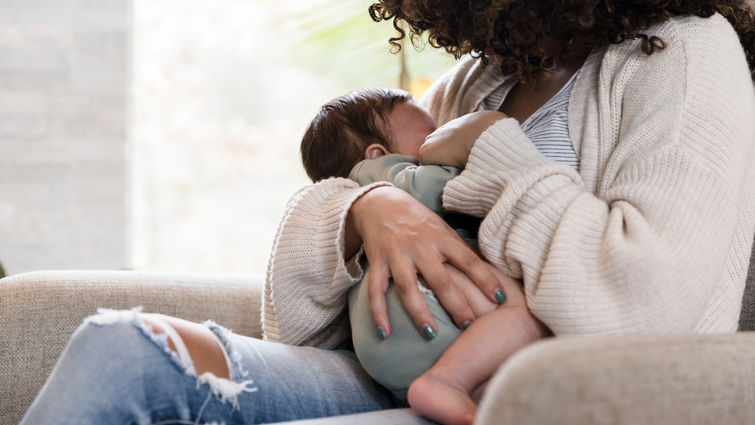
Elaine Hart, MD, obstetrician and gynecologist at Loma Linda University Children's Hospital, is passionate about empowering moms to breastfeed their babies. With COVID-19 ongoing, Hart says breastfeeding is still in the best interest of your baby, even if you have the virus. She helps to provide some insight below:
If a mom has COVID-19, can she still breastfeed?
Yes, she can either feed the baby at the breast or have others feed the baby her expressed breast milk.
What precautions should she take?
Moms must take all possible precautions to avoid spreading the virus to their babies.
- Wash hands with soap and water for 20 seconds
- Use a 60-95% alcohol hand sanitizer before touching the baby, pump, and bottles
- Wear a facemask
The infected mother should isolate from her baby except when breastfeeding. She will need to practice careful handwashing and use of a mask as noted above for a least 5-7 days until cough and respiratory secretions are significantly improved.
According to the Centers for Disease Control and Prevention, a baby being breastfed by a mom who is suspected or confirmed to have COVID-19 should be considered as having suspected COVID-19 unless there is a negative test for the duration of a mom’s recommended period of home isolation and 14 days.
Would it be safer for someone else in the family to feed the baby expressed breast milk?
Yes, it would be better to have someone who is not ill feed the baby expressed breastmilk from the mom if possible if the mom is very sick. If she isn’t severely ill, the mom can continue to breastfeed her baby using the appropriate precautions.
Will breastmilk spread the COVID-19 virus to a baby?
It is unknown but unlikely that the COVID-19 virus can spread to the baby via breastmilk. There have been limited studies on women with COVID-19 and another coronavirus infection, Severe Acute Respiratory Syndrome (SARS-CoV). The virus has not been detected in breast milk. However, there is no certainty whether mothers with COVID-19 can transmit the virus via breast milk. Even if the virus were present in the milk, it would likely be digested by the baby. According to the Centers for Disease Control and Prevention, even if a mother has COVID-19 infection, her intention to breastfeed should be supported by healthcare providers.
Should moms who don’t have confirmed or suspected COVID-19 be masking while breastfeeding their baby?
No, they do not need to wear a mask, but it is a good idea to wash their hands before breastfeeding or pumping.
Can a mom get the COVID-19 vaccination while breastfeeding or will that hurt the baby?
Yes, there is no data to suggest it would be harmful for the baby to receive breastmilk after the mom receives one of the COVID-19 vaccines. Biologically, it is very unlikely that the COVID-19 mRNA vaccine will cause harm to the baby. It may protect the breastfeeding baby with the antibodies to SARS-CoV-2 in the breastmilk, thus, protecting the baby from the COVID-19 infection.
The mRNA vaccine injected into the arm’s muscle tissue is made of lipid particles, and it is unlikely that this would enter the bloodstream and reach the breast tissue. If it did reach the milk, which is very unlikely, it would be digested by the baby and, thus, be unlikely to have any biological effects.
The American College of Obstetricians and Gynecologists recommends that the COVID-19 vaccine should not be withheld from pregnant or lactating women who meet the criteria for vaccination based on the Advisory Committee on Immunization Practices recommendations for priority groups. The Academy of Breastfeeding Medicine does not recommend women stop breastfeeding after receiving the COVID-19 vaccine.
Visit our website for more information and resources on breastfeeding.
